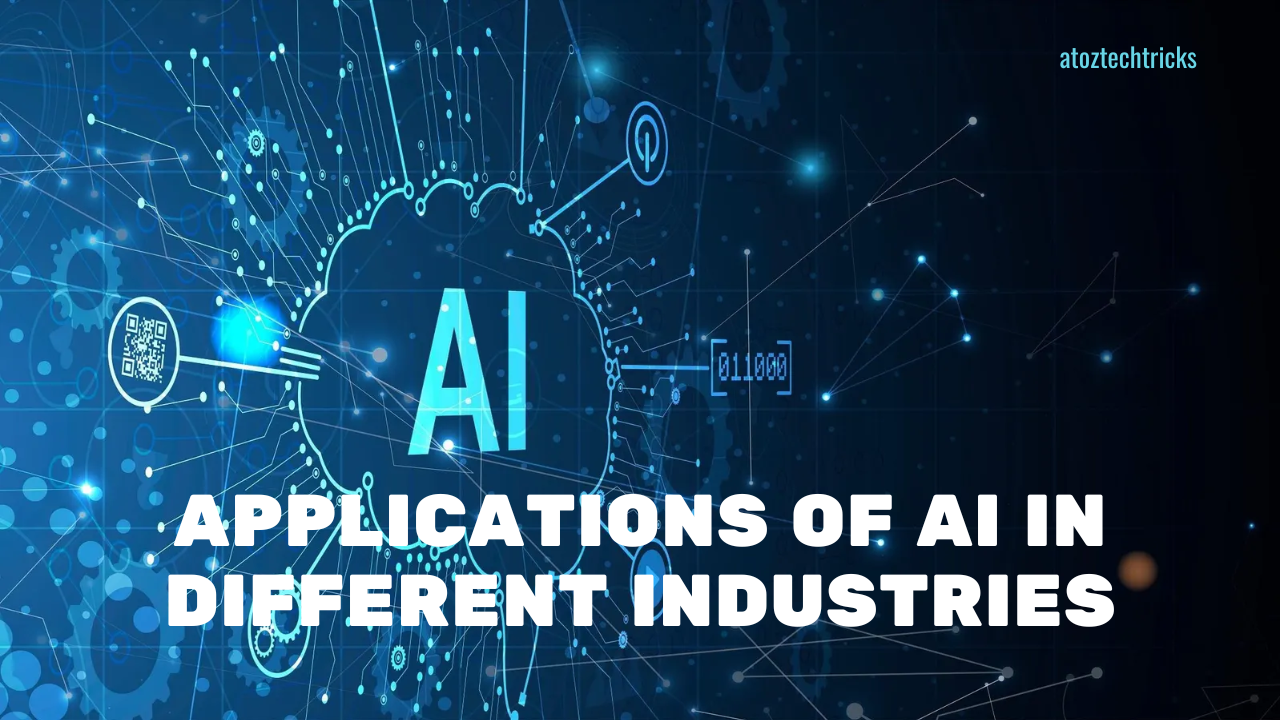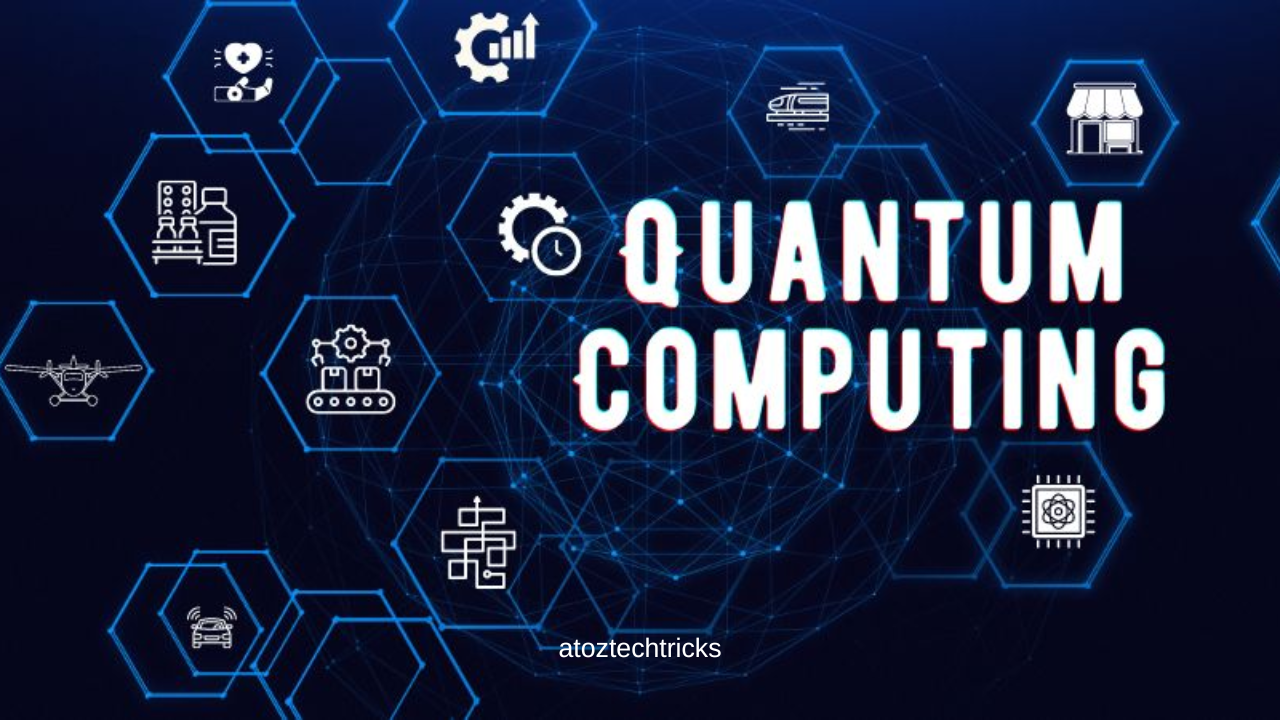Applications of AI in different industries
Artificial Intelligence (AI) has emerged as a transformative force across various industries, driving innovation, enhancing efficiency, and creating new opportunities. From healthcare to finance, AI is revolutionizing how businesses operate and how consumers interact with products and services. This comprehensive guide explores the diverse applications of AI across different sectors, highlighting key advancements, benefits, and future possibilities.
1. Healthcare
1.1 Diagnostic Assistance
AI is playing a crucial role in diagnosing medical conditions with greater accuracy and speed. Machine learning algorithms can analyze medical images such as X-rays, MRIs, and CT scans to identify patterns and anomalies that may be indicative of diseases like cancer, heart disease, and neurological disorders. For example, AI systems like IBM Watson Health and Google Health have demonstrated remarkable success in detecting early signs of various cancers, aiding radiologists in making more accurate diagnoses.
1.2 Personalized Treatment
Personalized medicine, driven by AI, tailors treatment plans based on individual patient data. AI algorithms can analyze genetic information, lifestyle factors, and medical history to recommend customized treatment options. This approach not only improves patient outcomes but also minimizes the risk of adverse reactions to medications. Companies like Tempus and Foundation Medicine use AI to provide personalized cancer treatment recommendations based on genetic profiles.

1.3 Drug Discovery and Development
AI accelerates the drug discovery process by analyzing vast datasets to identify potential drug candidates and predict their effectiveness. Machine learning models can analyze chemical compounds, biological data, and clinical trial results to identify promising drug candidates more quickly than traditional methods. For instance, the pharmaceutical company BenevolentAI has used AI to discover new treatments for diseases like ALS and Parkinson’s disease.
1.4 Remote Patient Monitoring
Wearable devices and remote monitoring systems equipped with AI can track patients’ vital signs and health metrics in real time. These systems can alert healthcare providers to potential issues before they become critical, enabling proactive interventions. AI-powered platforms like Livongo and Fitbit Health Solutions offer real-time monitoring and personalized health insights to patients with chronic conditions.
2. Finance
2.1 Fraud Detection
AI is enhancing fraud detection and prevention in the financial sector by analyzing transaction patterns and identifying anomalies that may indicate fraudulent activity. Machine learning algorithms can detect unusual behaviours, such as sudden changes in spending patterns or login attempts from unfamiliar locations, and flag them for further investigation. For example, Mastercard and Visa use AI to monitor transactions and prevent fraudulent activities.
2.2 Algorithmic Trading
Algorithmic trading leverages AI to execute trades at optimal times and prices based on real-time market data. Machine learning models analyze historical price movements, market trends, and news events to predict future price changes and make trading decisions. Firms like Renaissance Technologies and Two Sigma use AI-driven trading algorithms to gain a competitive edge in financial markets.
Mental Health: Understanding, Promoting, and Sustaining Wellbeing
2.3 Customer Service
AI-powered chatbots and virtual assistants are revolutionizing customer service in the financial industry. These tools can handle routine inquiries, provide account information, and assist with transactions, freeing up human agents to focus on more complex issues. For instance, Bank of America’s Erica and JPMorgan Chase’s COIN chatbot use AI to enhance customer interactions and improve service efficiency.
2.4 Risk Management
AI models help financial institutions assess and manage risks by analyzing various factors such as market conditions, creditworthiness, and economic indicators. Predictive analytics can identify potential risks and provide recommendations for mitigating them. Companies like Moody’s Analytics and SAS offer AI-powered risk management solutions to help financial institutions navigate uncertainties.
3. Retail
3.1 Personalized Shopping Experiences
AI enables retailers to provide personalized shopping experiences by analyzing customer data and preferences. Recommendation engines suggest products based on browsing history, past purchases, and demographic information. Online retailers like Amazon and Netflix use AI-driven recommendation systems to enhance user experience and drive sales.
3.2 Inventory Management
AI-powered inventory management systems optimize stock levels and reduce waste by predicting demand and identifying trends. Machine learning algorithms analyze historical sales data, seasonal trends, and external factors to forecast inventory needs accurately. Retailers like Walmart and Target use AI to streamline their inventory management processes and improve supply chain efficiency.

3.3 Customer Insights
AI tools analyze customer feedback, reviews, and social media interactions to gain insights into consumer behaviour and preferences. Sentiment analysis and natural language processing (NLP) help retailers understand customer sentiments and identify areas for improvement. Companies like H&M and Zara use AI to tailor their product offerings and marketing strategies based on customer insights.
3.4 Virtual Try-Ons
AI-driven virtual try-on technology allows customers to visualize how products will look on them before making a purchase. Augmented reality (AR) and computer vision technologies enable virtual fitting rooms, enhancing the online shopping experience. Brands like Sephora and Nike use AI-powered virtual try-on solutions to engage customers and boost sales.
4. Manufacturing
4.1 Predictive Maintenance
AI enhances predictive maintenance by analyzing sensor data from machinery to predict equipment failures before they occur. Machine learning models identify patterns and anomalies that may indicate potential issues, allowing manufacturers to perform maintenance proactively and minimize downtime. Companies like Siemens and General Electric use AI to optimize their maintenance strategies and improve operational efficiency.
4.2 Quality Control
AI-powered quality control systems use computer vision to inspect products for defects and ensure they meet quality standards. Machine learning algorithms can detect subtle defects that may be missed by human inspectors, ensuring higher product quality and consistency. Toyota and BMW employ AI-driven quality control systems to maintain high manufacturing standards.
4.3 Supply Chain Optimization
AI optimizes supply chain operations by analyzing data from various sources, such as suppliers, transportation providers, and inventory levels. Machine learning models forecast demand, optimize routes, and manage inventory to improve supply chain efficiency and reduce costs. Companies like Amazon and IBM use AI to enhance their supply chain management processes.
Mental Health in the Workplace: Importance, Challenges, and Solutions
4.4 Robotics and Automation
AI-powered robots and automation systems are transforming manufacturing processes by performing repetitive tasks with precision and efficiency. Collaborative robots (cobots) work alongside human operators, handling tasks such as assembly, welding, and painting. Companies like FANUC and KUKA use AI-driven robotics to improve productivity and safety in their manufacturing facilities.
5. Transportation
5.1 Autonomous Vehicles
AI is at the forefront of developing autonomous vehicles, which use machine learning algorithms, computer vision, and sensor data to navigate roads and make driving decisions without human intervention. Companies like Tesla, Waymo, and Cruise are leading the way in autonomous vehicle technology, aiming to enhance road safety and reduce traffic congestion.
5.2 Route Optimization
AI-powered route optimization systems analyze traffic patterns, weather conditions, and real-time data to determine the most efficient routes for transportation and logistics. These systems help reduce travel time, fuel consumption, and operational costs. Companies like UPS and FedEx use AI to optimize their delivery routes and improve logistics operations.
5.3 Fleet Management
AI enhances fleet management by providing real-time tracking, monitoring, and analysis of vehicle performance. Machine learning models can predict maintenance needs, optimize fuel usage, and improve overall fleet efficiency. Fleet management solutions from companies like Geotab and Verizon Connect leverage AI to support fleet operators in managing their vehicles effectively.
5.4 Traffic Management
AI-driven traffic management systems analyze traffic flow data to optimize traffic signal timings, reduce congestion, and improve road safety. Machine learning algorithms can predict traffic patterns and adjust signal timings dynamically to enhance traffic flow. Cities like Los Angeles and Barcelona are implementing AI-based traffic management solutions to address urban mobility challenges.
6. Agriculture
6.1 Precision Farming
AI enables precision farming by analyzing data from sensors, drones, and satellite imagery to optimize crop management. Machine learning models provide insights into soil conditions, weather patterns, and crop health, allowing farmers to make data-driven decisions and increase crop yields. Companies like John Deere and Climate Corp use AI to advance precision agriculture practices.
6.2 Pest and Disease Detection
AI-powered systems help detect pests and diseases in crops by analyzing images and data from field sensors. Machine learning algorithms identify early signs of infestations or diseases, allowing farmers to take preventive measures and minimize crop losses. Companies like Blue River Technology and Plantix use AI to support pest and disease management in agriculture.
6.3 Automated Harvesting
AI-driven robots and automation systems are revolutionizing harvesting processes by performing tasks such as picking, sorting, and packing crops. These systems enhance efficiency and reduce the reliance on manual labour. Companies like Agrobot and Octinion are developing AI-powered harvesting solutions for various crops, including fruits and vegetables.
6.4 Supply Chain Optimization
AI optimizes agricultural supply chains by forecasting demand, managing inventory, and improving logistics. Machine learning models analyze data from farms, warehouses, and transportation networks to enhance supply chain efficiency and reduce waste. Companies like AgroStar and Taranis use AI to streamline agricultural supply chain operations.
7. Education
7.1 Personalized Learning
AI supports personalized learning by tailoring educational content and learning experiences to individual students’ needs and preferences. Machine learning algorithms analyze student performance data and provide customized recommendations for study materials, practice exercises, and learning paths. Platforms like Khan Academy and Coursera use AI to enhance personalized learning experiences.
7.2 Intelligent Tutoring Systems
AI-powered intelligent tutoring systems provide real-time feedback and support to students, simulating one-on-one tutoring experiences. These systems use natural language processing and machine learning to assess student understanding, answer questions, and offer explanations. Companies like Carnegie Learning and Duolingo offer AI-driven tutoring solutions for various subjects and languages.
7.3 Administrative Automation
AI automates administrative tasks in educational institutions, such as grading, scheduling, and student enrollment. Machine learning algorithms streamline these processes, reducing administrative burdens and improving efficiency. Platforms like Gradescope and Ellucian use AI to support administrative functions and enhance institutional operations.
7.4 Learning Analytics
AI analyzes learning data to provide insights into student performance, engagement, and progress. Learning analytics tools help educators identify trends, track student outcomes, and make data-driven decisions to improve teaching strategies. Companies like Blackboard and Canvas use AI to offer learning analytics solutions for educators and institutions.
Stigmas Surrounding Mental Health: Understanding, Challenging, and Overcoming
The applications of AI across different industries illustrate its potential to drive innovation, improve efficiency, and create new opportunities. From healthcare to education, AI is transforming how businesses operate and how consumers interact with products and services. As AI technology continues to evolve, its impact on various sectors will only grow, shaping the future of industries and society as a whole. Embracing AI and understanding its applications will be crucial for organizations seeking to stay competitive and leverage its benefits in an increasingly digital world.





Post Comment